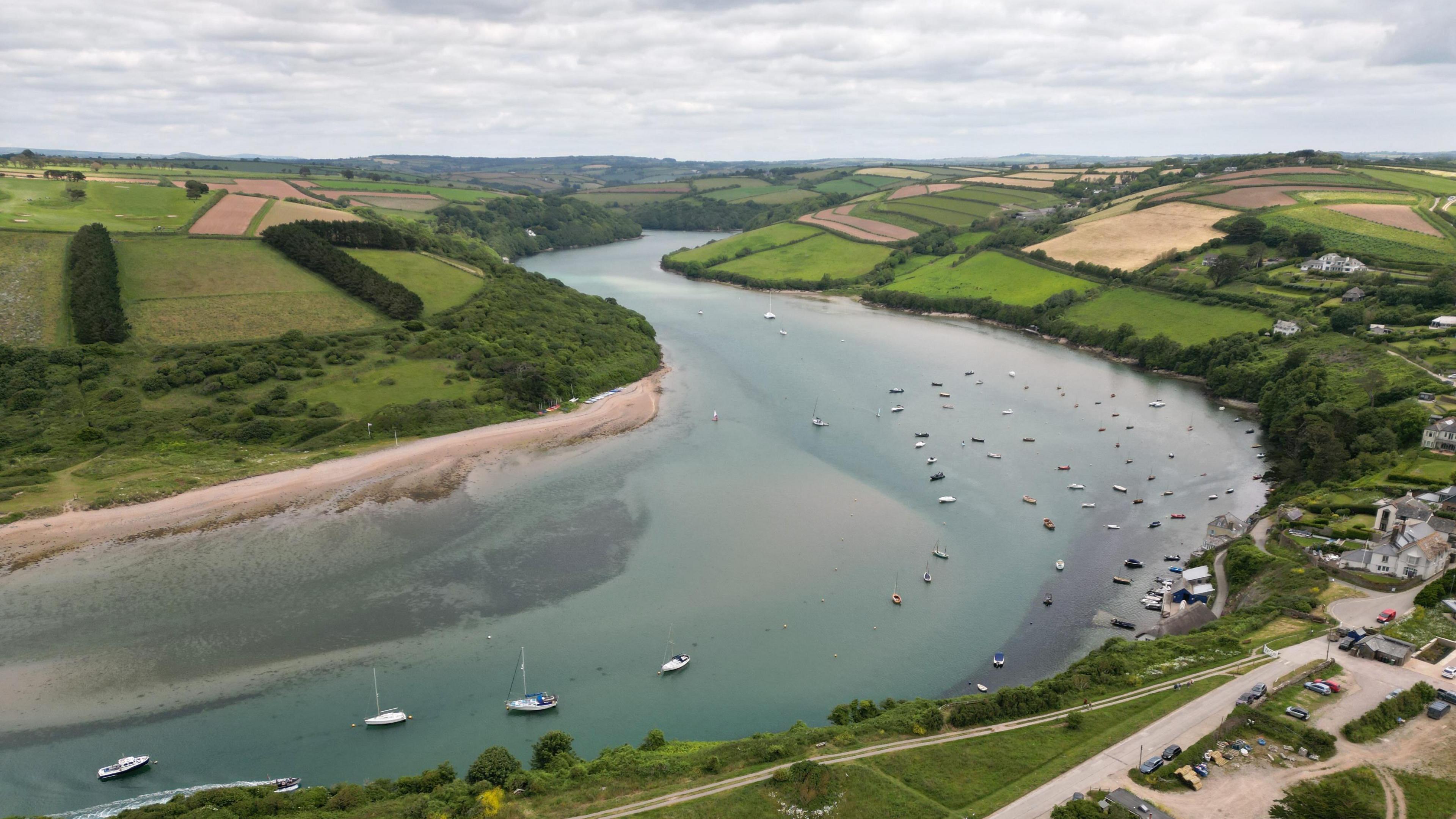Proposed wind farms 'devastating' for fishers
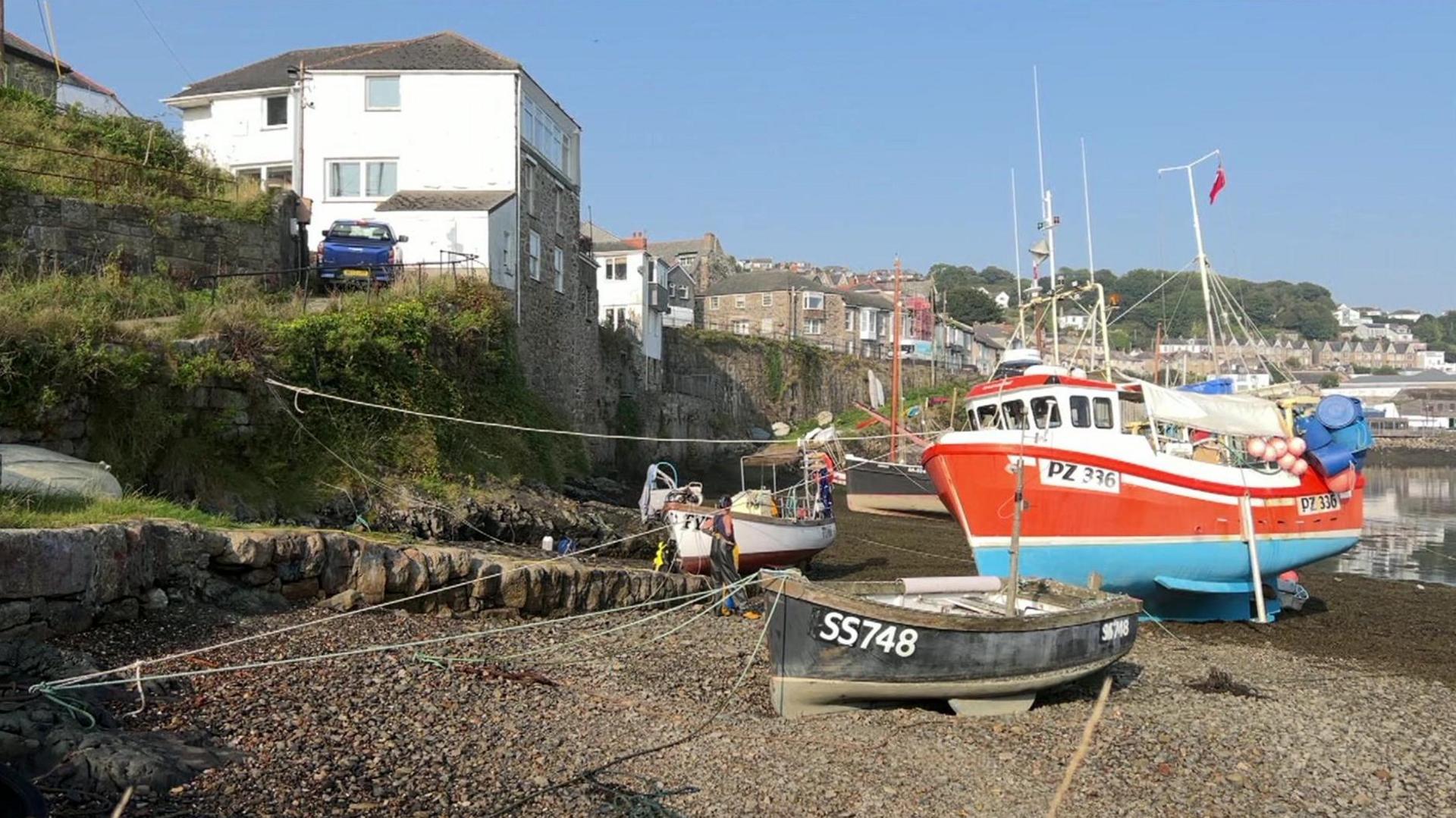
Plans for the latest development sites for offshore wind have been published
- Published
Proposals to expand planned wind farm sites off the Devon and Cornwall coast could devastate the fishing industry, fishermen have warned.
It comes after the Crown Estate, which owns the sea bed, published its latest map of potential development zones.
It includes thousands of square miles off Land's End and the Isles of Scilly, currently prime fishing grounds, and an expanded zone off north Devon.
The Crown Estate said it would be seeking views "from across industry and marine stakeholders" during the initial process and it had already "engaged directly" with fisheries.
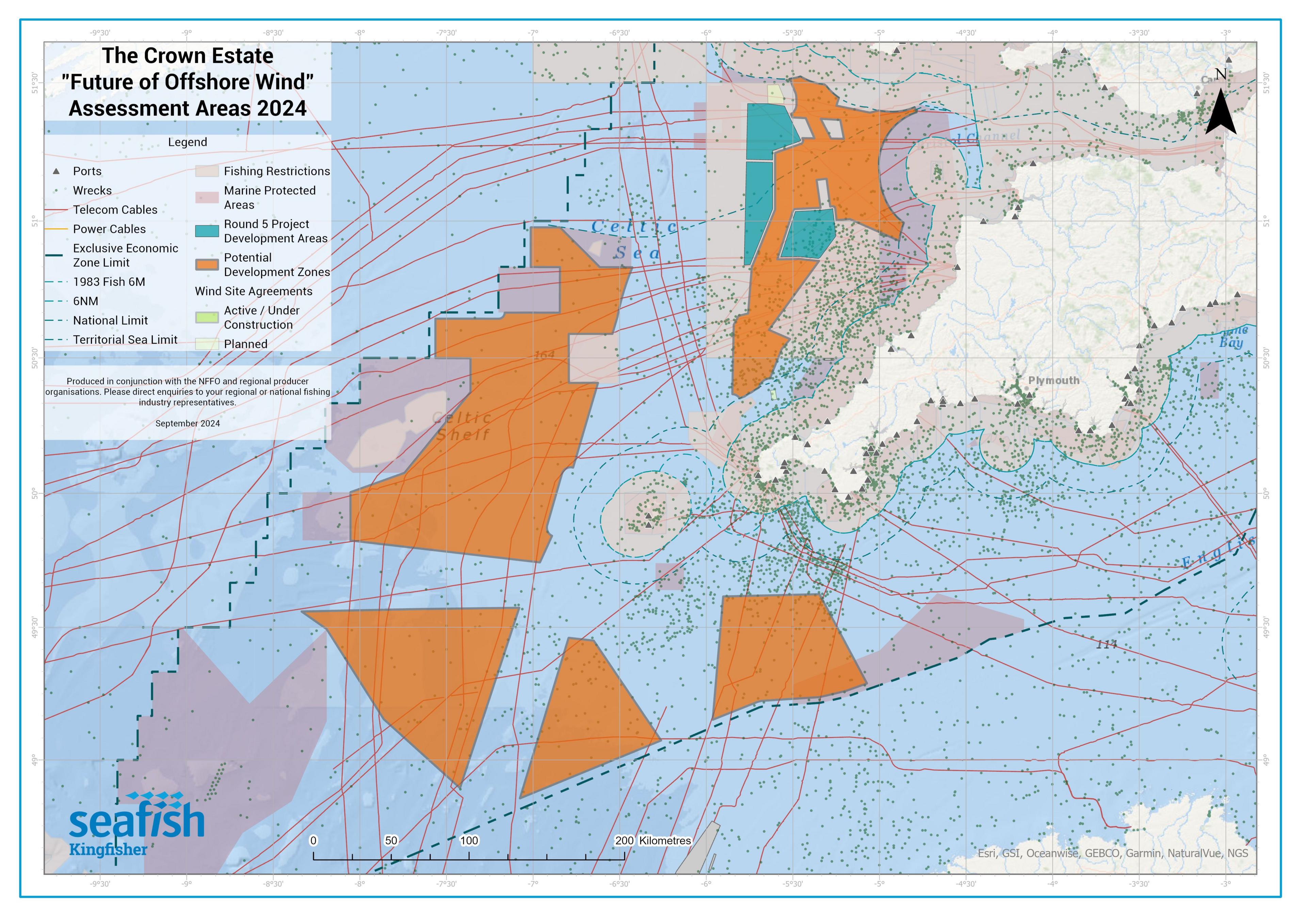
The Crown Estate published its latest map of potential development sites for offshore wind farms
Dave Stevens, who has fished off Newlyn for 30 years, said new offshore wind development would not be good for the industry.
"It would be a devastating blow if that went ahead," he said.
"Everyone would be wanting to get out.
"I don't think the industry has been this challenged ever."
Chris Ranford, chief executive of the Cornish Fish Producers Organisation, added: "We aren't anti-offshore renewable energy, we're not anti-marine protected area. We're pro having some sense and balance."
Steve Jermy, chief executive of Celtic Sea Power, who has been involved in the project since the start, cautioned it was still "very early days".
He said: "What I'd like to do is reassure people... the danger is we get into an 'us' and 'them'.
"It really would be such a mistake. I'd much rather think about it as one and all."
'Countless new opportunities'
The Crown Estate said "offshore wind has a critical role to play in supporting the UK's energy transition".
It said the sector created "countless new opportunities within communities for skills and jobs, both onshore and at sea".
"The seabed is subject to a wide range of competing and complementary demands, which is why we have set out our initial thinking on how, and where, the future deployment of offshore wind might be possible, taking into account the needs of different sectors – including fishing – and the natural environment."
The Department for Environment Food and Rural Affairs said it would "continue to work with colleagues across government and the Crown Estate to manage the demands on sea" by "releasing nature's recovery, supporting our fishers and renewables sectors".
Follow BBC Cornwall on X (formerly Twitter), external, Facebook, external and Instagram, external. Follow BBC Devon on X (formerly Twitter), external, Facebook, external and Instagram, external. Send your story ideas to spotlight@bbc.co.uk, external.
Related topics
- Published18 July 2024
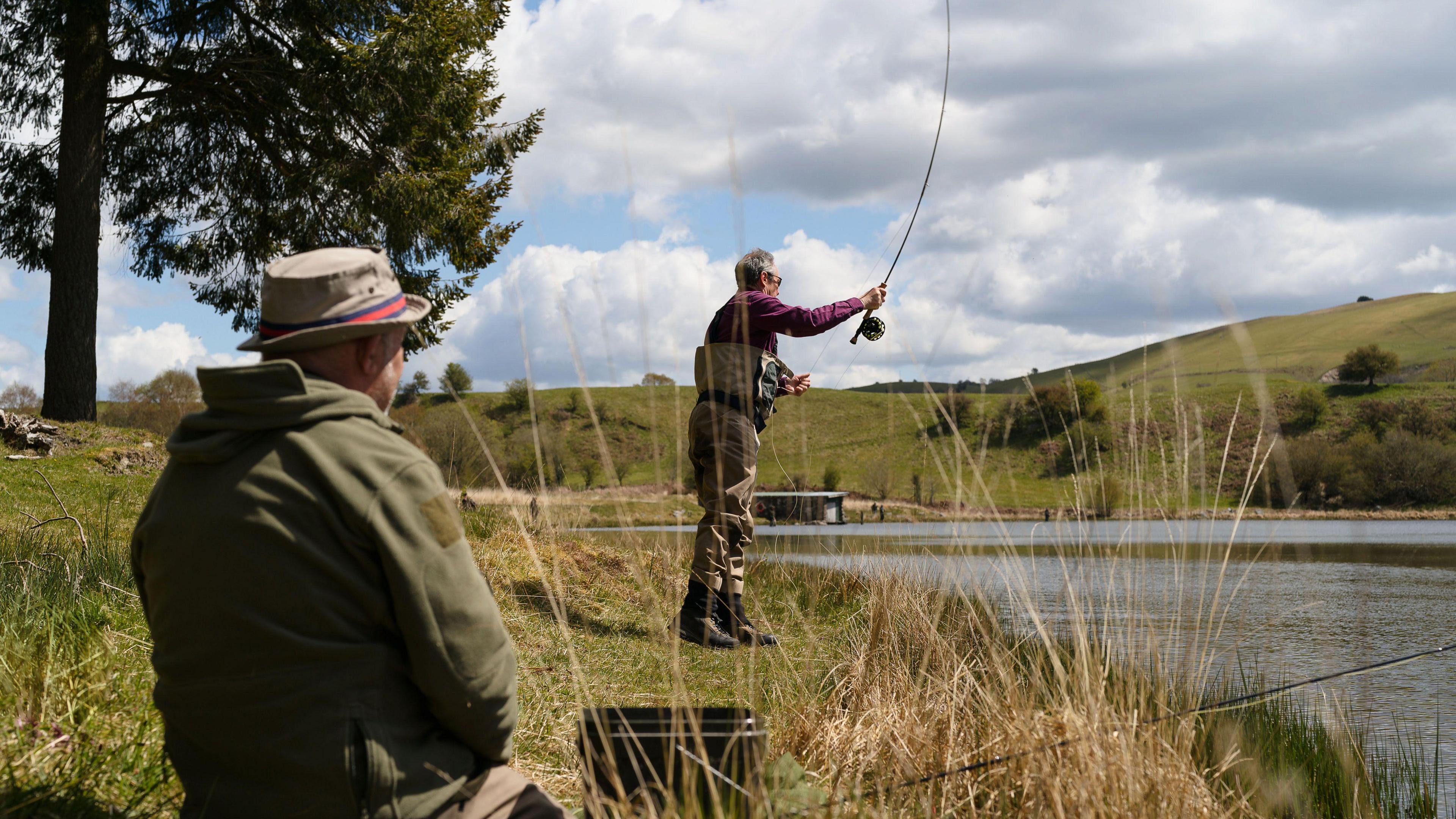
- Published10 May 2024
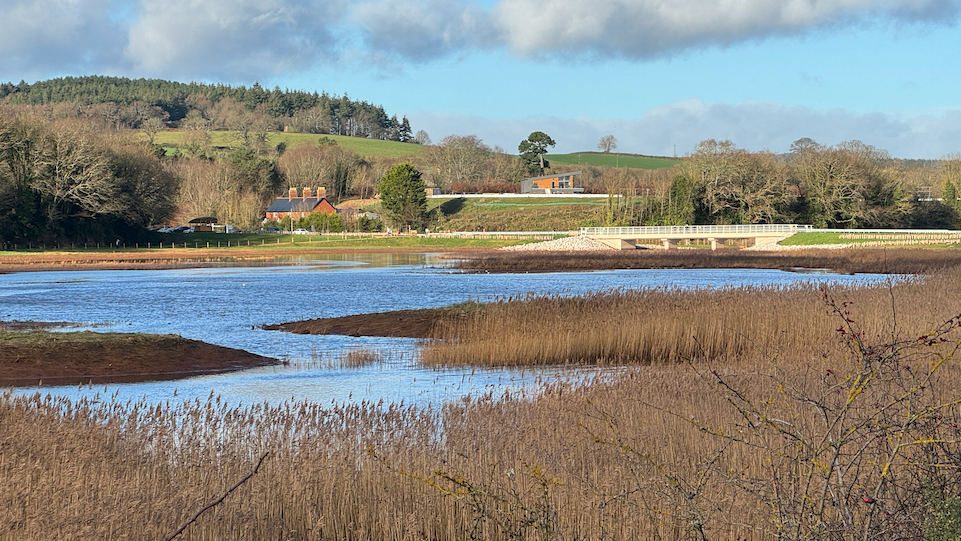
- Published19 June 2024
